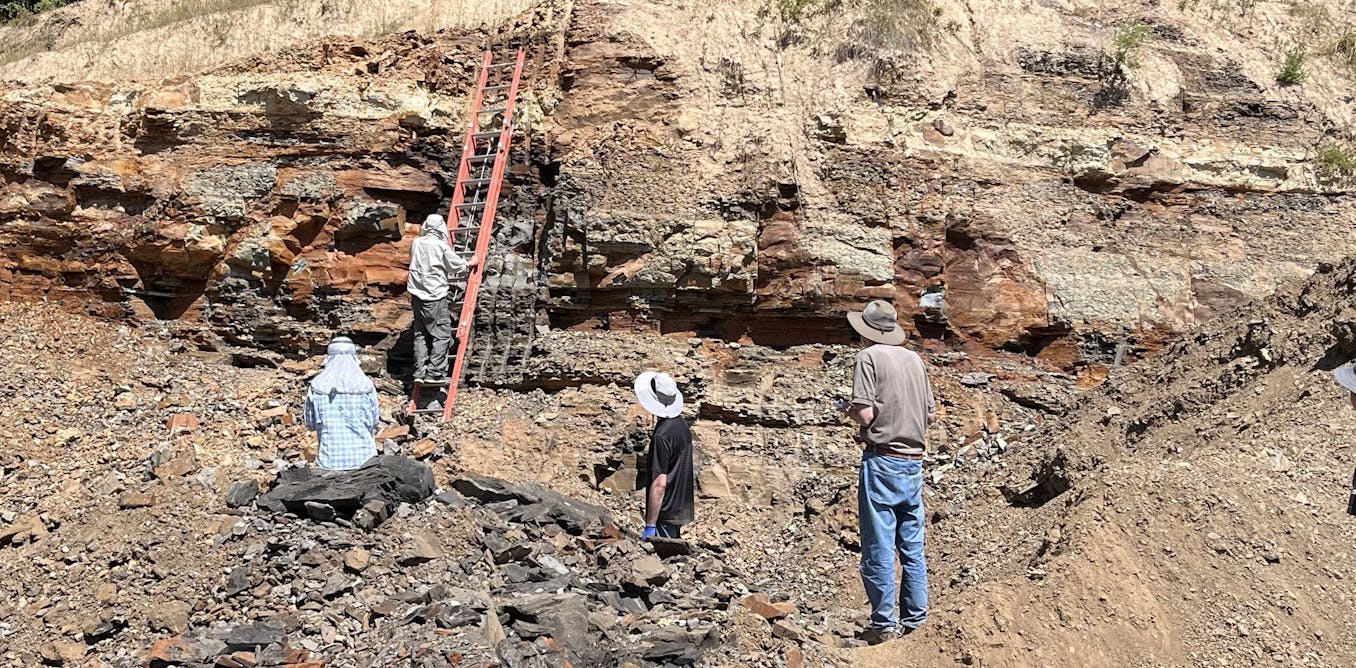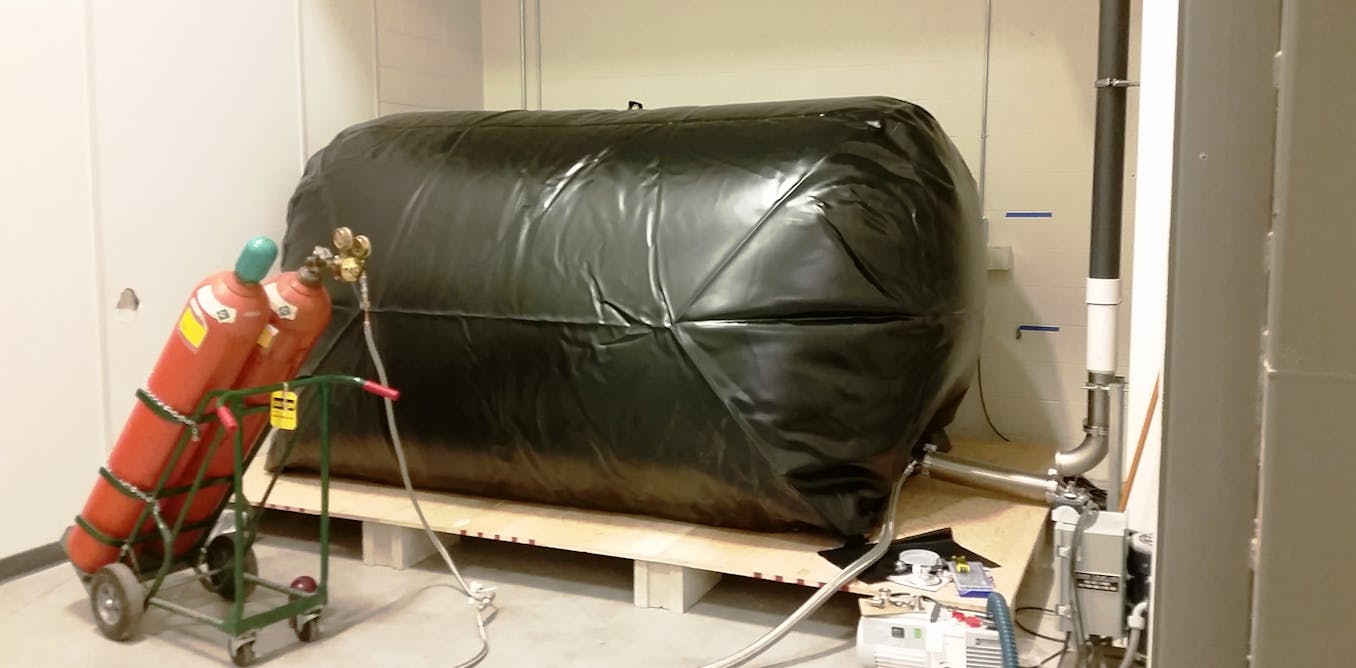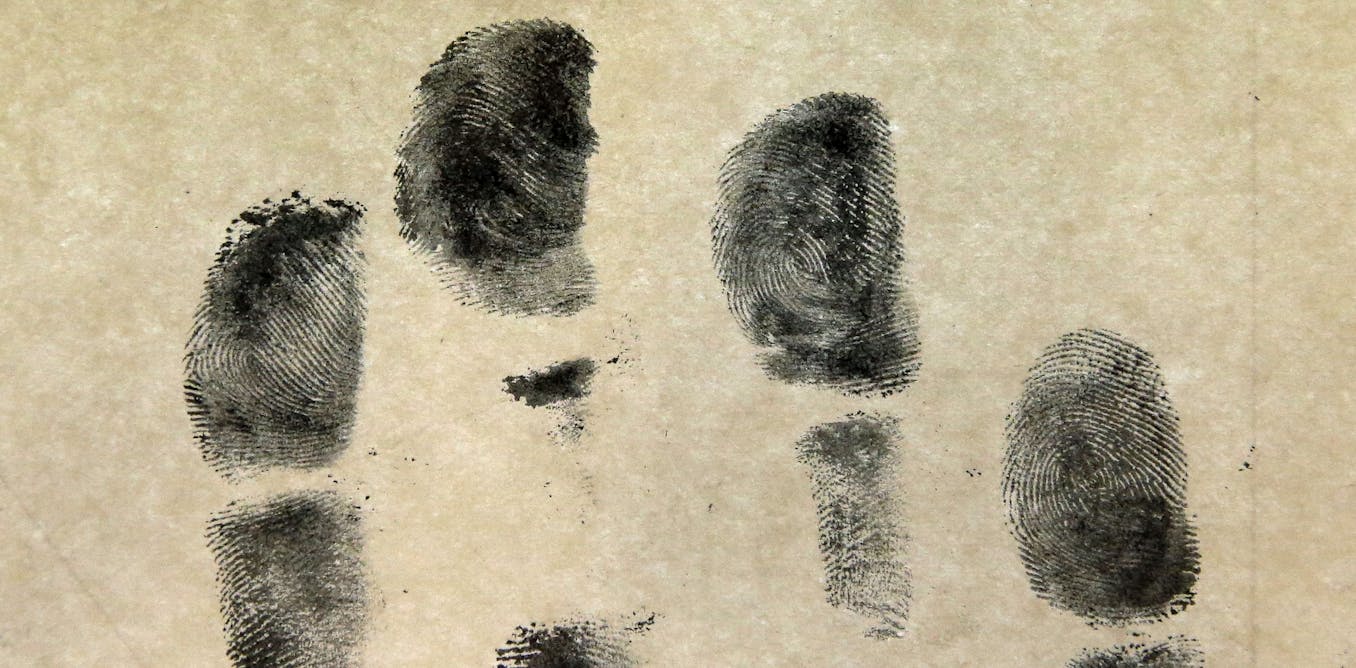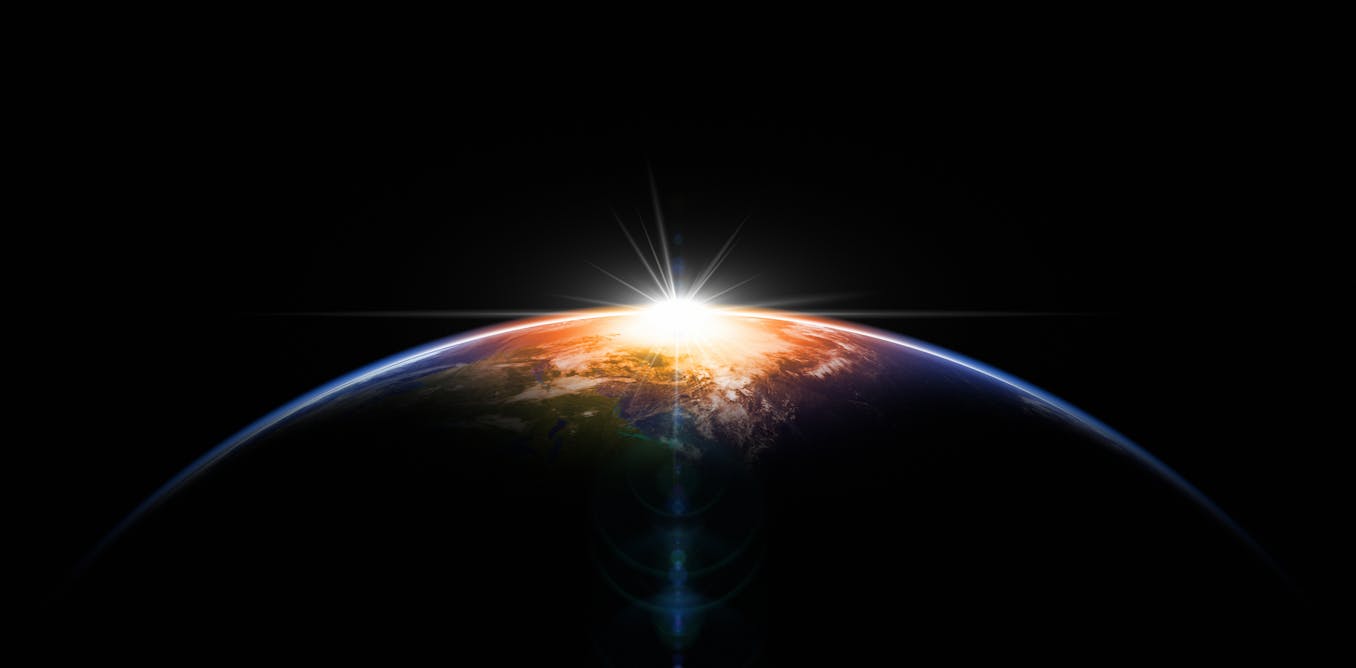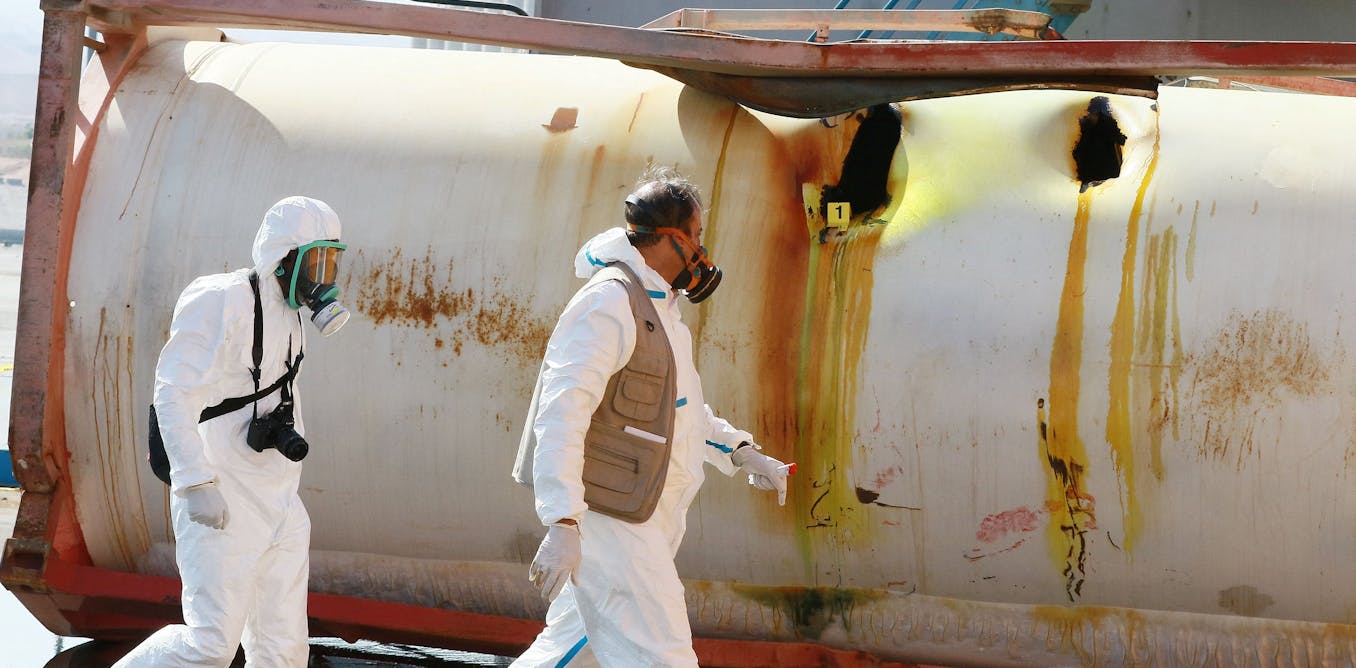Self-extinguishing batteries could reduce the risk of deadly and costly battery fires
Lithium-ion battery fires are becoming increasingly common as electric vehicles spread, and are hard to extinguish. A new approach uses an electrolyte based on a commercial fire extinguisher.
Feb. 6, 2024 • ~7 min
Studying lake deposits in Idaho could give scientists insight into ancient traces of life on Mars
While NASA rovers on the surface of Mars look for hints of life, researchers back on Earth are studying ‘echoes of life’ from ancient basins – hoping that the two sites might be similar.
Feb. 5, 2024 • ~7 min
Helium is an essential material for research and medical equipment, but it's nonrenewable and difficult to recycle
With the fourth significant shortage of helium in a decade continuing, companies and researchers are looking for alternative sources.
Jan. 17, 2024 • ~8 min
Your fingerprint is actually 3D − research into holograms could improve forensic fingerprint analysis
Using fingerprints to catch criminals isn’t 100% accurate, but analyzing fingerprints in 3D, rather than 2D, could improve the process.
Jan. 16, 2024 • ~8 min
How active are the microorganisms in your yogurt? We created a new tool to study probiotic activity — and made it out of cardboard
Probiotics are great for your gut, but which sources contain the most beneficial bacteria? Newly developed sensors are helping scientists figure it out.
Dec. 19, 2023 • ~7 min
Earth may have had all the elements needed for life within it all along − contrary to theories that these elements came from meteorites
Scientists analyzing isotope ratios have found that many of the elements that make up life could be left over from Earth’s formation.
Dec. 6, 2023 • ~4 min
Chlorine is a highly useful chemical that's also extremely dangerous − here's what to know about staying safe around it
Chlorine is a widely used industrial chemical that’s frequently a factor in toxic accidents and workplace injuries. A pharmaceutical expert explains why it’s so hazardous.
Nov. 27, 2023 • ~8 min
Thank gluten's complex chemistry for your light, fluffy baked goods
Ever wonder why bakers spend so long kneading their dough? They’re trying to form a gluten network, which helps the bread rise.
Nov. 20, 2023 • ~6 min
/
13



